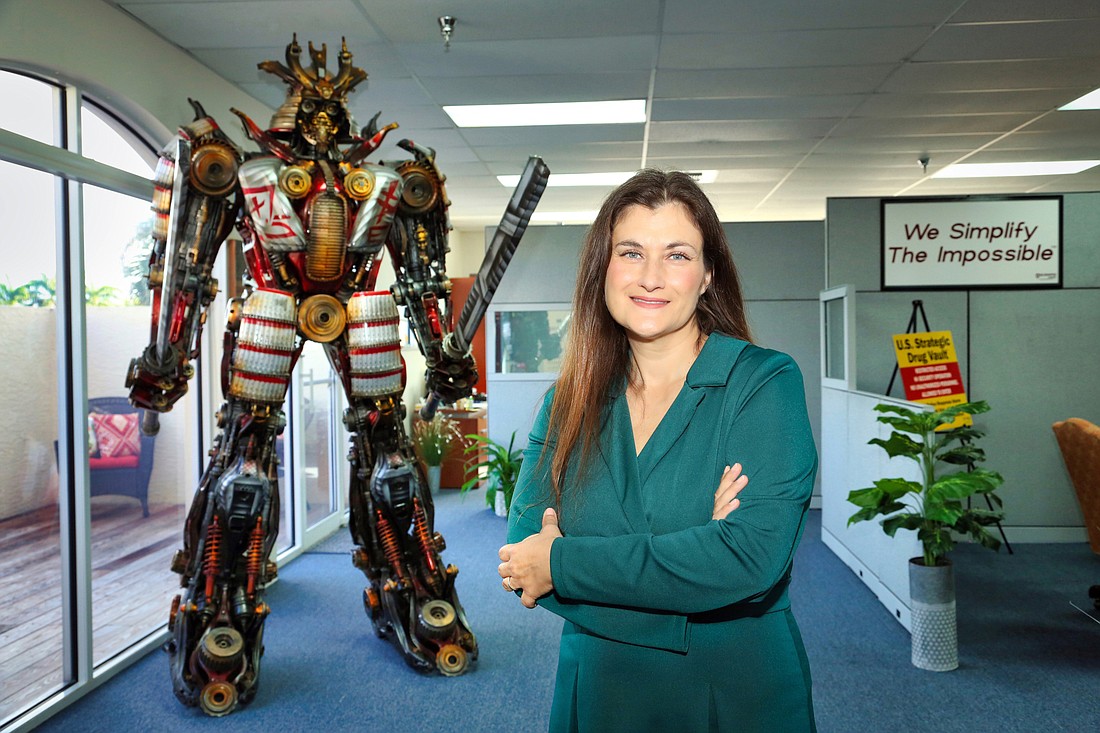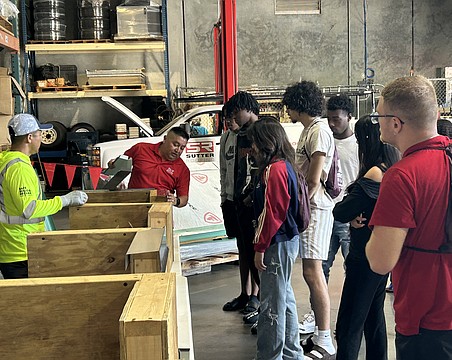During her many years at IBM, Jacqueline von Zwehl worked on and led teams worldwide tasked with developing technology-driven solutions to help health care providers comply with laws and regulations like the Health Insurance Portability and Accountability Act (HIPAA). An assignment that took her to France opened her eyes to the different ways other countries handled pharmaceutical security, and she began to see an opportunity back home.
“I learned there were smarter, better, more efficient ways to do things,” says von Zwehl, 46. “I came back to the U.S. and started mulling over things. And I said ‘I think there might be a smarter way to do this, a smarter way to bring affordable pharmaceutical security solutions to our health care providers.’”
She formed an LLC in 2012, then spent years refining the concept for her company. In early 2016, she launched Scripps Safe, which offers a range of products and services to help hospitals, pharmacies, EMS operators and other health care providers keep drugs safe and secure. In year six, the company, which includes a Software-as-a-Service component, has some big plans, including planning for an IPO and hiring dozens of people.
"I had a dream; I had a vision. I knew this was something I could do, and essentially I was taking a risk on myself and what I knew I was capable of doing." — Jacqueline von Zwehl, Scripps Safe
Health care providers need to follow a range of rules and regulations related to drug safety. At the federal level, that includes adhering to laws like the Controlled Substances Act of 1970 and the Drug Supply Chain Security Act of 2013, which created new drug tracking and tracing requirements enforceable by the U.S. Food and Drug Administration that are being phased in through 2023. Every state then has a state board or bureau of narcotics that can defer to the federal laws or enact even stricter requirements. It’s all intended to keep prescription drugs accounted for and out of the wrong hands — but it can create compliance challenges for doctors, nurses, pharmacists and other health care providers.
That’s where Naples-based Scripps Safe steps in. “We have figured all of this out,” says von Zwehl. “So we can say to them, we’ll take on the burden of bringing to you fully integrated compliance solutions, and you can worry about taking care of your patients.”
Scripps Safe provides both the hardware like safes and lockboxes and the software that handles elements like inventory management and permission controls. “You don’t have to piecemeal anything together,” says von Zwehl. “And you can grow as you need to. If you invest in the building blocks, you can grow and it’s still fully integrated.”
Everything works together through the company’s recently patented Scripps System, an end-to-end Software-as-a-Service pharmaceutical inventory and access management system. “The Scripps System patent allows Scripps Safe to be the only company (that) can take a secure enclosure and connect it to the cloud, to back-end systems and to camera surveillance for a fully integrated and compliant solution,” says von Zwehl.
The company has just over 600 clients across the United States and a handful in Canada, and booked revenue doubled between 2020 and 2021 (von Zwehl declines to provide specific revenue figures). Scripps Safe is planning an IPO to raise funds for hiring more employees in key areas like marketing, sales and software development, and von Zwehl expects the firm to grow from its current staff of six to about 42 employees by the end of this year. That’s a potential 600% growth in payroll.
Capital is always a challenge for a small but growing company like Scripps Safe, which von Zwehl got off the ground by liquidating her 401(k). “I did something I would not recommend to anybody to do,” she says. “But I had a dream; I had a vision. I knew this was something I could do, and essentially I was taking a risk on myself and what I knew I was capable of doing. But I also knew the market, and I knew there was an opportunity here that no one was addressing.”
A growing area for the company is opioid treatment centers. “Addiction treatment facilities have really, really become overburdened throughout this pandemic,” von Zwehl says. “A lot of people found themselves unable to cope with all of these things going on. We’ve seen our partners in this vertical grow faster than you and I can even imagine.”
Affordability is a key part of Scripps Safe’s business model. The company’s solutions hit the pricing sweet spot between do-it-yourself, piecemeal solutions and options that use not-always-necessary “Rolls-Royce technology,” as von Zwehl calls it. “A lot of our health care partners don’t need all the bells and whistles,” she says, so the firm strips most of them out.
While the company chases the next opportunities, von Zwehl also reflects on the first five years, saying building a company hasn’t always been easy. “Being an entrepreneur is definitely not for the faint of heart,” says von Zwehl. “It’s literally like jumping off a cliff without a parachute.”






